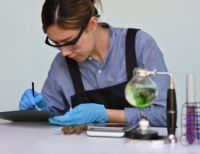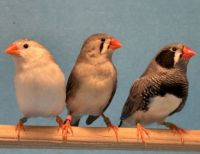Research on the trillions of microorganisms that make up a person’s microbiome can lead to medical breakthroughs to treat diseases like inflammatory bowel syndrome and diabetes. According to Alyssa Bader, a Tsimshian Assistant Professor in the Department of Anthropology at McGill University, microbiome samples from Indigenous communities have the potential to further Western medicine, but those same communities often have been excluded from the research process and may miss out on the benefits that result from their contributions to science. There is also a history of this research exploiting and harming Indigenous peoples.
“Microbes associated with Indigenous peoples have been framed as valuable resources to restore lost microbial diversity and treat chronic disease in industrialized populations, but these research directions often do not center the research needs or interests of the Indigenous communities that researchers rely on for microbiome data,” said Bader.
Two perspectives pieces published recently in Nature Microbiology by an international team, including Bader, of Indigenous and non-Indigenous researchers from institutions, including University of Adelaide, University of Wisconsin-Madison, Pennsylvania State University and others, look to rectify the issue.
The articles lay out a framework for ethical microbiome research practices that include Indigenous communities and ensure that these communities reap the benefits from their contributions. The researchers discuss the Indigenous principle of relationality, in which people are interconnected to each other and the world around them, as a framework to guide human microbiome researchers to work in partnership with Indigenous people.
Research with Indigenous communities should be deeply collaborative and uphold Indigenous sovereignty throughout the research process, added Bader. “This includes ensuring Indigenous community partners have a central role in developing research questions, establishing protocols for research consent and data management, and interpreting and communicating results,” she said.
More:
A relational framework for microbiome research with Indigenous communities by Alyssa C. Bader et al., and Microbiome ownership for Indigenous peoples by Matilda Handsley-Davis et al., were published in Nature Microbiology.
About McGill University
Founded in 1821, McGill University is home to exceptional students, faculty, and staff from across Canada and around the world. It is consistently ranked as one of the top universities, both nationally and internationally. It is a world-renowned institution of higher learning with research activities spanning three campuses, 12 faculties, 14 professional schools, 300 programs of study and over 39,000 students, including more than 10,400 graduate students.
















